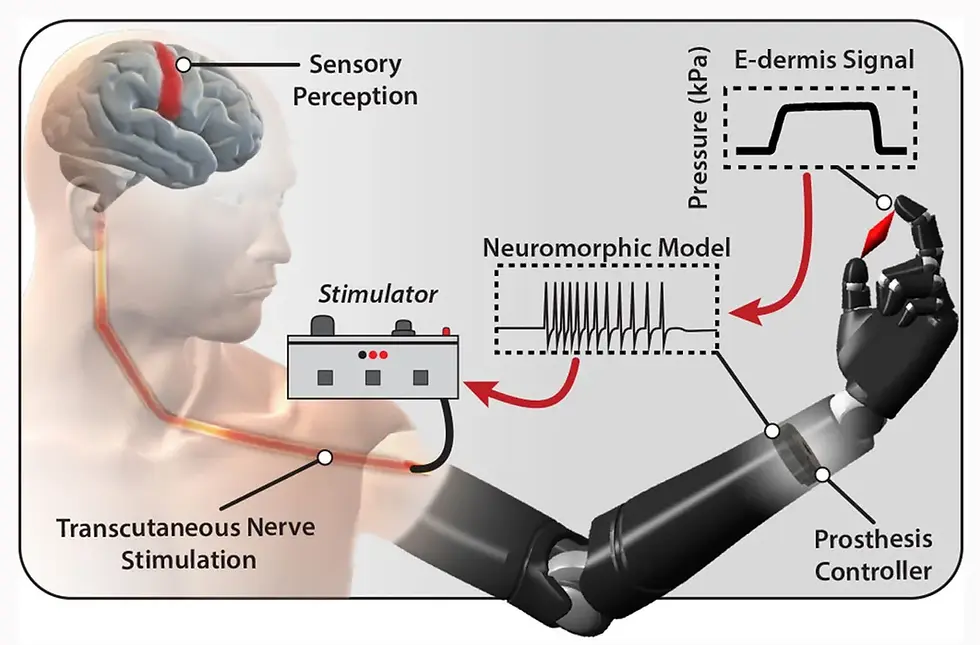QUANTUM Prosthetics
- Vikram Choudhary
- Mar 21, 2023
- 1 min read
Quantum prosthetics refers to the use of quantum-inspired technologies and principles in the design and development of prosthetic devices for individuals with amputations or disabilities. These prosthetic devices are designed to be more intuitive and responsive, providing greater functionality and mobility for the user.
Quantum-inspired technologies, such as quantum sensors and quantum computing, can provide greater sensitivity and accuracy in detecting and responding to signals from the user's residual limb. This can allow for more natural and intuitive movements of the prosthetic limb.
For example, some research is being done on developing prosthetic limbs that use quantum sensors to detect subtle movements and signals from the user's muscles and nerves. These sensors can then translate these signals into movements of the prosthetic limb, providing greater precision and control for the user.
Quantum computing is also being explored as a potential tool for designing and optimizing prosthetic devices. By using quantum algorithms, researchers can simulate and model complex systems, allowing for faster and more efficient design and testing of prosthetic devices.
While the development of quantum prosthetics is still in its early stages, it has the potential to significantly improve the lives of individuals with amputations or disabilities by providing greater functionality and mobility




















Comments